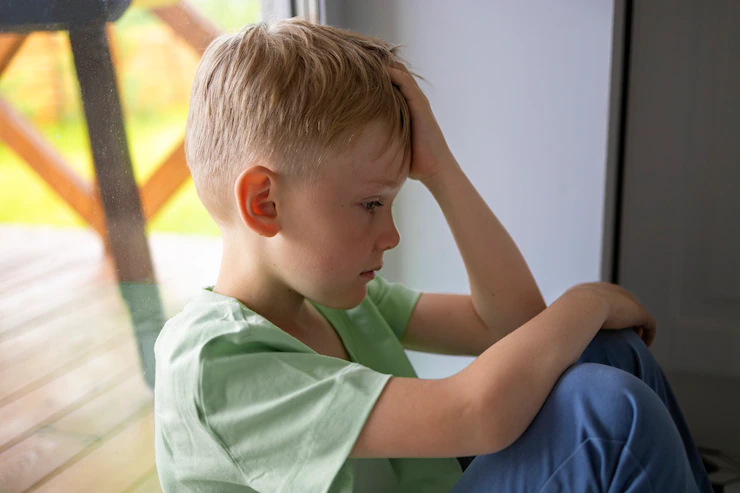Childhood trauma can have a lasting impact on an individual’s life, including their relationships. If you suspect that your partner has experienced childhood trauma, it’s crucial to approach the topic with empathy, understanding, and support. This article will explore ten signs that may indicate your partner has childhood trauma. Recognizing these signs can help you navigate your relationship with sensitivity and provide a foundation for healing and growth together.
Here are Signs He Has Childhood Trauma:
- Emotional Withdrawal
A common sign of childhood trauma is emotional withdrawal. Your partner may struggle with opening up, expressing emotions, or forming deep emotional connections. They may fear vulnerability or have difficulty trusting others due to past experiences.
- Hypervigilance
Those who have experienced childhood trauma may exhibit hypervigilant behavior. They may be constantly on high alert, easily startled, and have a heightened sense of danger. This hypervigilance is a survival mechanism developed during their traumatic experiences.
- Intense Mood Swings
Childhood trauma can lead to intense mood swings and emotional dysregulation. Your partner may experience sudden shifts in mood, from extreme anger and irritability to sadness or detachment. These fluctuations are a result of unresolved emotions from their past trauma.
- Fear of Abandonment
Individuals who have experienced childhood trauma often develop a deep fear of abandonment. They may have experienced neglect, rejection, or unstable relationships during their formative years, leading to a fear of being left or betrayed in adult relationships.
- Difficulty with Trust
Trust issues are common among individuals with childhood trauma. Your partner may find it challenging to trust others, including you, due to past experiences of betrayal or broken trust. They may constantly question your intentions and struggle with intimacy.
- Self-Sabotaging Behavior
People with childhood trauma may engage in self-sabotaging behaviors as a way to protect themselves from potential harm. They may push away their loved ones or engage in destructive patterns, inadvertently sabotaging their own happiness and relationships.
- Avoidance of Intimacy
Intimacy can be challenging for individuals with childhood trauma. Your partner may avoid physical or emotional intimacy, as it may trigger feelings of vulnerability and fear. They may struggle to let their guard down and form deep connections.
- Difficulty Regulating Emotions
Childhood trauma can disrupt emotional regulation, making it challenging for your partner to manage their emotions effectively. They may experience intense emotional reactions or have difficulty understanding and expressing their feelings.
- Flashbacks or Intrusive Memories
If your partner has experienced childhood trauma, they may occasionally have flashbacks or intrusive memories related to their past experiences. These flashbacks can be distressing and may cause emotional and psychological distress.
- Pattern of Unhealthy Relationships
Individuals with childhood trauma may have a pattern of engaging in unhealthy or abusive relationships. They may unknowingly gravitate towards partners who replicate the dynamics of their past trauma, perpetuating a cycle of pain and dysfunction.
Understanding the signs of childhood trauma can help you provide support and create a safe space for your partner. It’s important to approach the topic with compassion, patience, and a willingness to listen. Encourage your partner to seek therapy or professional help if needed, as healing from childhood trauma takes time and effort. With understanding and support, you can navigate the challenges together and build a healthier and more resilient relationship.










